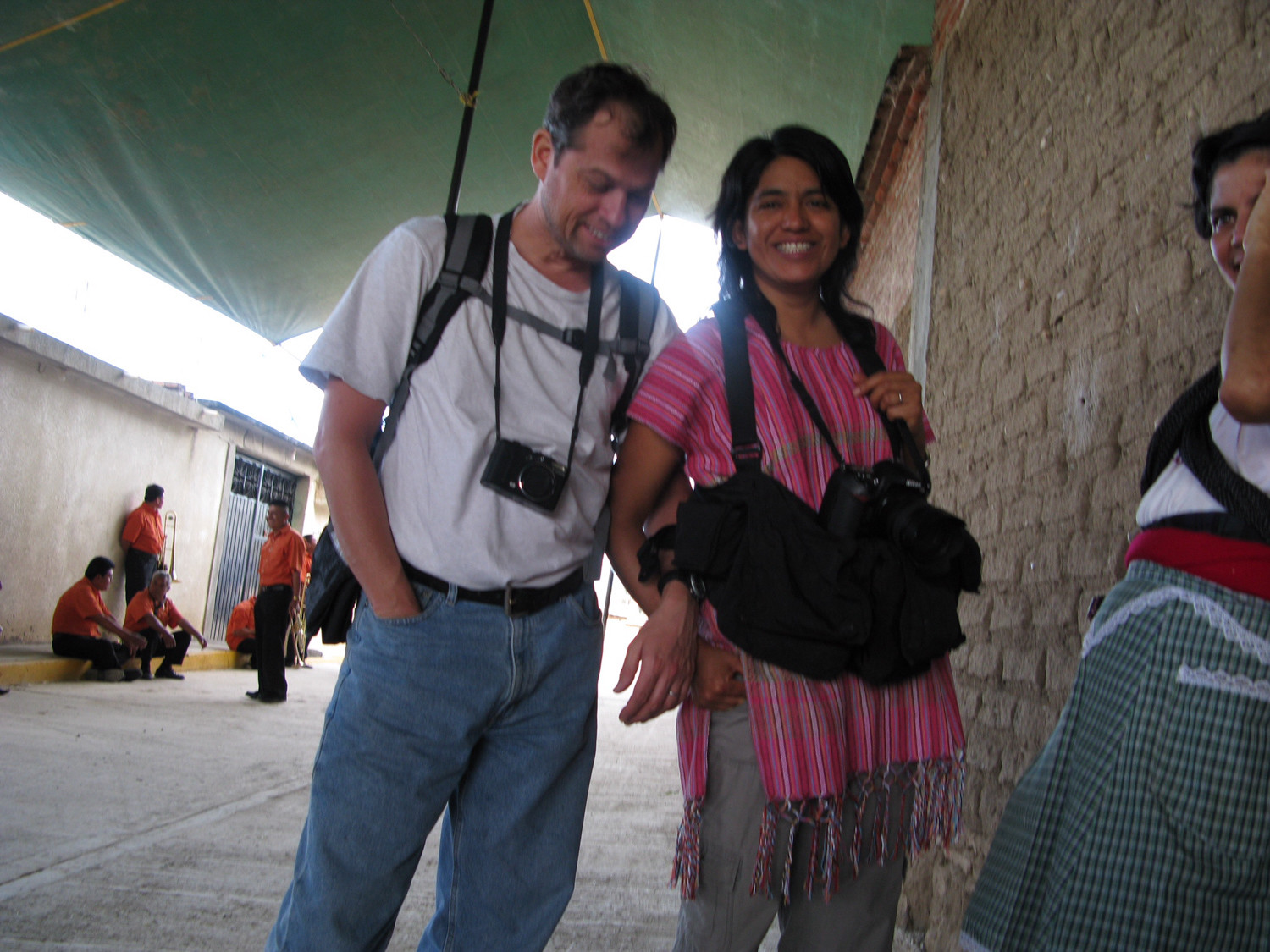Mexico quake injures Riverdalian, claims wife
Practically lost in a news cycle that included three catastrophic hurricanes was a massive earthquake that rocked Mexico City, killing more than 360 people and injuring 6,000 others.
That Sept. 19 quake, however, hit close to home after it injured veteran photojournalist and Riverdale native Wesley Bocxe, and killed his wife, Elizabeth Esguerra Rosas, when the apartment building they were in collapsed.
The tragedy has sparked an outpouring of support from photographers and others around the world through an online fundraising campaign started by photographers J.B. Diederich and Santiago Lyon, which quickly raised more than $110,000 for Bocxe’s recovery.
The couple’s daughter, Amara, was at school when the quake hit, and is safely with her maternal grandparents.
Bocxe grew up in the Charlotte Bronte Houses, where his father was the superintendent, and attended Saint Gabriel School.
He and David Gonzalez, an award-winning photographer and bureau chief at The New York Times, became friends while working in Honduras around 1985. They briefly attended Cardinal Hayes High School together in the ‘70s but didn’t know each other then. When they met more than a decade later, that shared alma mater was the first thing they bonded over.
“We were both a couple of guys from the Bronx who did OK,” Gonzalez said.
After a period shooting graffiti with Martha Cooper and Henry Chalfant, Bocxe started working internationally as a photojournalist by the mid 1980s. Coincidentally, his experience shooting the 1985 Mexico City earthquake was particularly formative. According to a Spanish-language interview at the time, cited by Public Radio International, he called his work there his “first great coverage.”
Gonzalez and Bocxe remained close for years, and their friendship endured even when Bocxe moved permanently to Mexico City in the late ‘90s after meeting Esguerra there. While working together in Guatemala around that time, Gonzalez credited Bocxe’s quick thinking for getting them out of life-or-death situations. As he told it, that same instinct may have saved his life during the earthquake.
“He made a very quick decision...he figured, if the building’s gonna collapse, the safest place he could be, with his wife, would be on the roof, and hope it pancakes down and you ride it down,” Gonzalez said. “And it worked, except his wife was killed.”
“Wesley is one of the most tenacious and creative and determined photographers that I’ve ever met in my 30-plus years in the business when it comes to getting to stories and bypassing impediments and sneaking into countries,” said Lyon, a veteran Associated Press photographer who has known Bocxe for decades.
According to Lyon, Bocxe — an avid surfer — was able to enter Panama during the Noriega dictatorship by traveling with his surfboard, bypassing a shortage of journalistic visas. During the Gulf War, he snuck into Saudi Arabia on a transit visa, convinced the authorities there not to deport him, and then traveled around the country disguised as a military official.
Bocxe was “determined and effective at bypassing restrictions that were put in place to restrict the flow of information,” Lyon said.
“And I think that was one of the reasons why he stopped doing that line of work … he was frustrated with the whole notion of information restriction and embedding.”
Bocxe, according to Gonzalez, found an abandoned ammo belt during the 1991 Gulf War and modified it to carry photography gear. It was his first “chestvest,” and he would later sell them full-time with Esguerra under the Newswear brand.
“After a few years, he was making enough that it didn’t matter that he wasn’t taking pictures anymore,” Gonzalez said. “Until about five years ago when his daughter was born, and all of a sudden, you start seeing a lot of pictures of a little girl.”
Several chestvests were recovered from the rubble of the apartment building, which have been put to good use.
“One of his buddies snaps a shot of the Mexican military wearing Wesley’s vest, and so right away, all of these photojournalists are like, ‘The Mexicans are stealing his stuff,’” Bocxe’s brother, Henk Bocxe, said. “It turns out, the night of the earthquake, they did come upon bags of brand new Newswear vests, and they distributed to all the first aid workers and the military who were in the area.”
According to Lyon, the Mexican government is now looking to thank Bocxe for his help with the vests.
The outpouring of support has been particularly moving for Henk, who still lives in New York.
“People are coming up to me, complete strangers,” Henk said, “and they’re like, ‘You’re Wesley’s brother?’ ‘Yeah I’m Wesley’s brother.’ ‘Oh my God, he’s my best friend!’”
Bocxe is facing a long recovery, but his prognosis is optimistic. He’ll likely remain in the hospital for several weeks and is facing several surgeries to repair a laundry list of broken bones. However, he was taken off his respirator Sept. 27, and is responding to simple commands, despite being placed in a medically induced coma, according to Henk.
Those wishing to donate to Wesley Bocxe’s recovery fund can visit GoFundMe.com/4gloto8.






